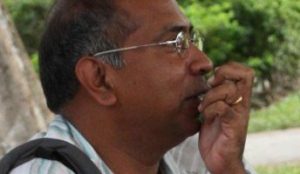Transformation from the Top-down: Hajiji’s Exemplary Leadership in Sabah

Hajiji’s personal commitment to developmental progress, transparency and good government stands in stark contrast to both his fellow politicians, both in Sabah.
Over the last three years Sabah, a state of over 3.5 million, has undergone a transformation, with positive growth rates, floods of new investment from China and South Korea keep coming in. Hajiji’s strong personal commitment to the developmental wellbeing of his state during his tenure the last three years as chief minister deserves much of the credit for this striking turnaround. No stranger to Sabah’s intricate native race-based political equations, Hajiji Noor nevertheless persevered with politically popular initiatives designed not for his personal aggrandizement like so many of his predecessors, but for the state’s benefit as a whole.
Hajiji’s electoral victory in 2020 over Shafie Apdal, was attributed by many observers as much to the efficiency of the Election Commission in ensuring a free and fair election, as to voter disenchantment with Shafie and his Warisan for dissolving the Sabah State Assembly when there was already an upwards trend of COVID-19 infections and was spreading like wild fire all over Sabah.
Hajiji took up Covid-19 containment and relief measures even before he assumed office. Soon after being sworn in chief minister, Hajiji was down with Covid-19 and he was in a critical stage 4 and was admitted to the hospital for weeks and later under house quarantine for months. In spite of all that his government and the Ministry of Health worked 24X7 to ensure people’s welfare. They set up a war room. They worked on a war- footing to tackle the oxygen shortage and tide over the crisis. They ensured there was no shortage of oxygen beds. They made the vaccination a mass movement. They significantly brought down Covid-19 mortality. Even amidst lockdown, they ensured people’s livelihood was not greatly affected. The Gabungan Rakyat Sabah (GRS) government handled the pandemic very well.
Hajiji’s focus has undeniably been on developing his state.
Upon taking office in 2020, Hajiji moved to address the state’s infrastructure problems “on a war footing”, massively investing in new roads and cutting the travel time between population centres substantially. Hajiji has coupled these concrete developmental programmes with meaningful political reforms.
While many argue that Hajiji thus far has addressed only the proverbial low hanging fruits, tackling the dysfunctional nature of the state’s governance was the logical first step in turning the state around.
While most short analyses of Sabah celebrate its spectacular growth rate over the last three years, few note the pitifully small base the state is building from. Sabah would have to grow at a rate of 10.5 percent for the next 15 years in order to match Selangor’s current per capita income. Even the total hardcore poor KIRs Sabah as of March was 13,172, down from 22,510 three years ago. This is an achievement.
This eye-catching performance has largely been driven by public, not private spending.
Still for Sabah to continue growing as it has, Hajiji must now tackle much more difficult structural and institutional problems.

